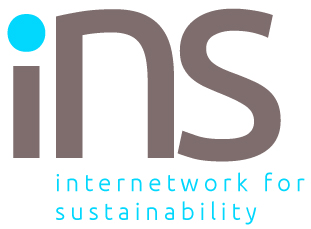
The Trump administration has moved to halt construction on the nearly finished offshore wind farm Revolution Wind off Rhode Island and Connecticut. At the same time, Google President and CIO Ruth Porat is steering the company toward fossil fuels to power its fast-growing AI operations. For Porat, it’s a déjà vu moment: during the financial crisis, she was at Morgan Stanley, deeply tied to the subprime mortgage bets that nearly sank the global economy. Now, critics warn, she risks repeating history — only this time with energy instead of housing.
A crucial project stopped in its tracks
Revolution Wind was supposed to be online in 2025, supplying clean electricity to more than 350,000 homes. Built by Danish developer Ørsted, it was already 80% complete when, on August 25, the U.S. Bureau of Ocean Energy Management suddenly ordered all work to stop. Officially, the pause is about “national security concerns,” though the agency has offered no details.
For the Democratic governors of Rhode Island and Connecticut, the decision is unacceptable. Offshore wind is central to their states’ climate goals, since they have little land for large-scale energy projects. Connecticut Senator Chris Murphy went further, tying the move directly to Trump’s ties with Big Oil, calling it the product of a corrupt system where fossil fuel interests buy political favors with campaign donations.
Trump, long hostile to wind power, has called turbines ugly, falsely claimed they cause cancer, and recently declared renewable energy “THE SCAM OF THE CENTURY!” His new term in the White House has put fossil fuels back at the center and rolled back support for renewables.
Environmental groups are split: climate advocates call the decision a direct hit to U.S. climate credibility, while an anti-wind nonprofit, Green Oceans, praised it as a win for marine ecosystems.
Google’s fossil fuel pivot
At the same time, Google — once a leader in corporate climate action — is veering off course under Ruth Porat. After years of touting carbon-free operations and record renewable contracts, Google is now lobbying for weaker fossil fuel restrictions, more coal, and delays in state clean-energy targets. Porat even praised political attacks on what she called the “climate extremist agenda.”
But the math is clear: renewables are now the cheapest and fastest-growing sources of power. Solar costs have dropped 90% in a decade — three times cheaper than coal, half the price of gas. Nuclear, another Porat favorite, is six times more expensive than solar and notorious for delays.
Rivals see the opportunity
Microsoft and Meta are doubling down on renewables instead. Both are signing massive solar and wind contracts, locking in low energy costs for decades. Microsoft has more than 30 gigawatts of renewables under contract and plans to run all data centers on carbon-free power by 2030. Meta just signed a 20-year deal that locks in solar at $27 per MWh — cheaper in 2040 than it is today.
That’s not just green PR. It’s hard business logic. By powering AI with cheaper clean energy, Meta and Microsoft could cut operating costs by 40–50% compared to Google’s fossil-powered data centers.
The new subprime?
The parallels to 2008 are striking. Back then, Wall Street ignored the fundamentals of the housing market and triggered a crash. Today, fossil fuels are the new subprime: risky, expensive, and out of step with economic reality. Yet Porat is betting billions on them.
The irony is sharp: Porat built her reputation on risk management. Now, she risks underestimating the biggest financial and climate risk of her career.
Bottom line: The fight over Revolution Wind and Google’s fossil pivot shows how climate goals, economic interests, and political ideology are colliding head-on. If subprime was the ticking time bomb of 2008, fossil fuels are the ticking time bomb of today. Ignore the fundamentals again, and we may be headed for another crash — and more blows to the climate.











